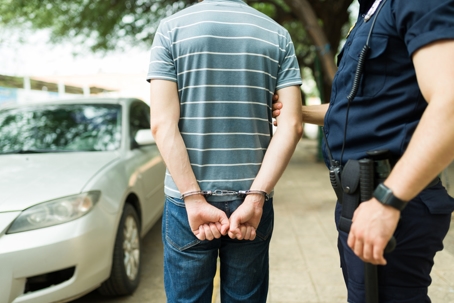(A Florida Criminal Defense Lawyer’s Perspective)
Being arrested for domestic battery in Florida can be overwhelming, especially if you’ve never been through the criminal justice system before. The process moves quickly, and knowing what to expect in the hours and days after your arrest can help you make informed decisions about your defense.
The Arrest and Booking Process
In Florida, domestic battery is taken very seriously, and law enforcement usually makes a decision as to who is going to jail – who is the main aggressor? But in majority of cases, someone is going to be arrested. This can happen after:
- A 911 call from the alleged victim or a witness
- Police responding to a disturbance and observing injuries or signs of a struggle
- Statements made by you, the alleged victim, or others on the scene
Once you’re arrested, you’ll be taken to the county jail for booking. This includes being fingerprinted, photographed, and entered into the system. In Florida, domestic battery charges carry a “no bond hold” until you see a judge, meaning you won’t be able to post bail immediately. In Duval county, you will be assigned to the morning or afternoon calendar and bond will be set.
First Appearance Hearing (Within 24 Hours)
Florida law requires that you be brought before a judge, usually within 24 hours, for a first appearance. This hearing is critical because the judge will:
- Set your monetary bond (if any)
- Issue a no-contact order with the alleged victim, unless the State has spoken to the victim and the Judge decides to order no-violent contact instead.
- Discuss the formal charges
- Decide if there are conditions for release, such as staying away from the home or surrendering firearms
Example:
If you and your spouse live together, the no-contact order could mean you can’t return home, even if you pay the mortgage or rent. You may need to arrange temporary housing while your case is pending.
No-Contact Orders and Immediate Restrictions
A no-contact order means you cannot call, text, email, visit, or send messages through friends or family to the alleged victim. Violating this order will lead to a bond revocation.
It’s important to know that even if the alleged victim wants to drop the charges, the order remains in place until modified by a judge. This can create complications if you share children, a business, or a home.
The Prosecutor’s Role – Why the Case May Continue Without the Victim
In Florida, domestic battery cases are prosecuted by the State Attorney’s Office, not by the alleged victim. This means the decision to move forward belongs to the prosecutor. Even if the alleged victim recants or refuses to cooperate, prosecutors may proceed if they believe they have enough evidence — such as 911 recordings, photographs, medical records, or statements made to police.
Example:
If officers arrived and documented injuries in photographs, and there’s a recorded 911 call describing the incident, the prosecutor may still take the case to trial even without the alleged victim’s testimony.
Building a Defense Early
From the moment of arrest, every statement you make can be used against you. Having a defense lawyer involved early can help by:
- Requesting and reviewing all police reports, 911 calls, and bodycam footage
- Investigating inconsistencies in the alleged victim’s statements
- Challenging the legality of the arrest or any searches
- Seeking to modify no-contact orders where appropriate
Bottom Line
A domestic battery arrest in Florida sets off a series of legal steps that happen quickly and can affect your freedom, your family, and your record. Understanding the process — from the initial arrest to possible pretrial resolutions — is key to protecting your rights.
If you or a loved one has been arrested for domestic battery, speak to a Florida criminal defense lawyer immediately. The sooner your defense starts, the better your chances of achieving the best possible outcome.

